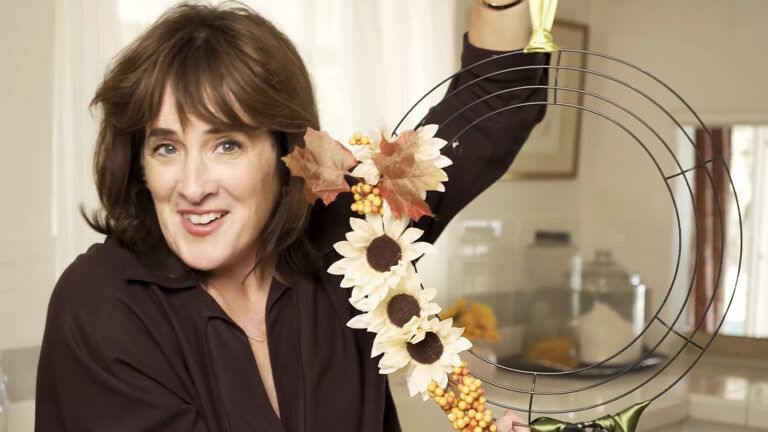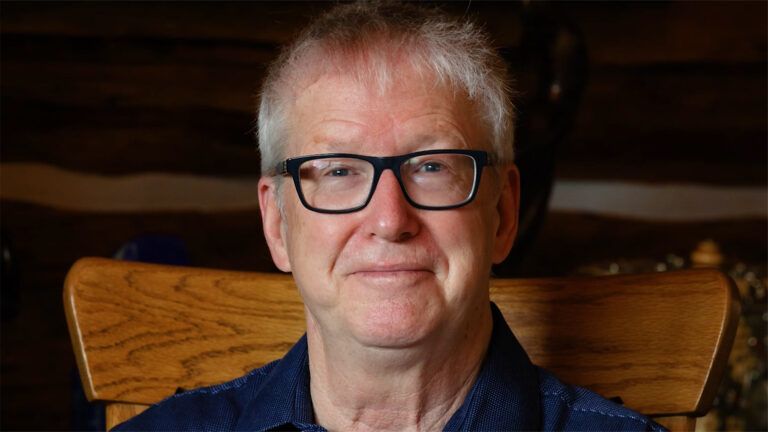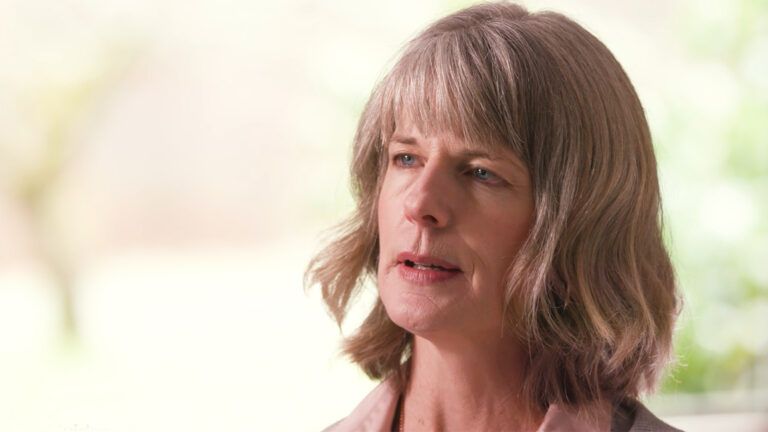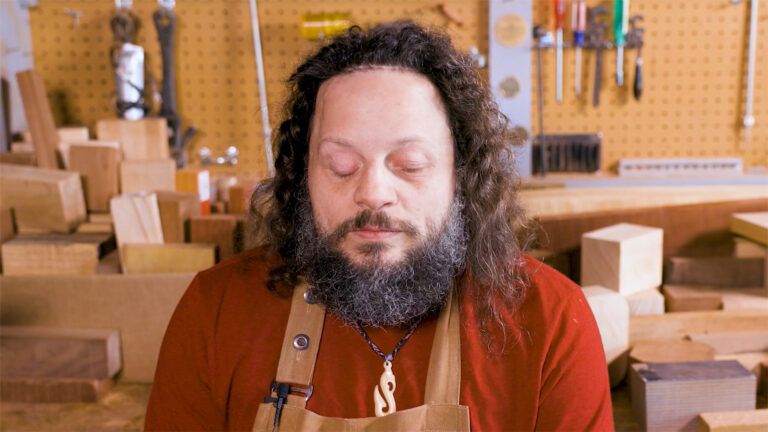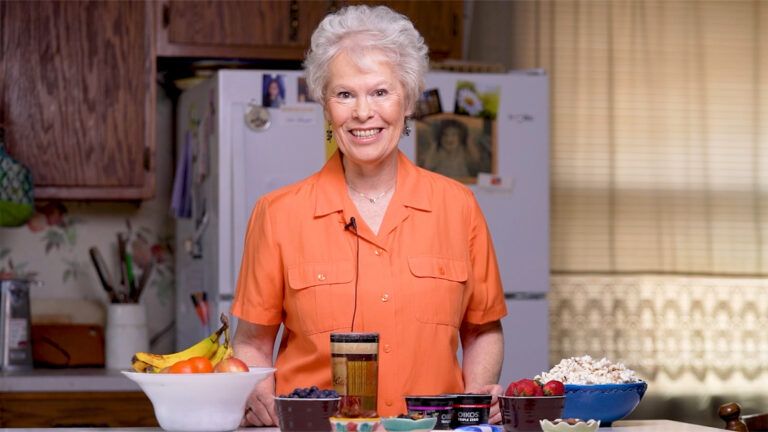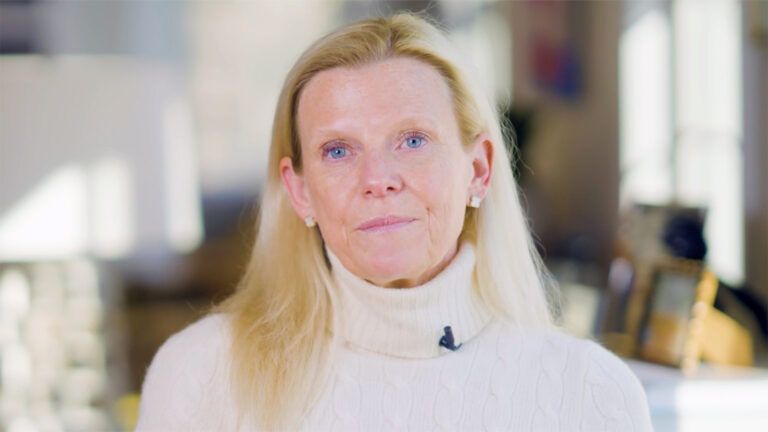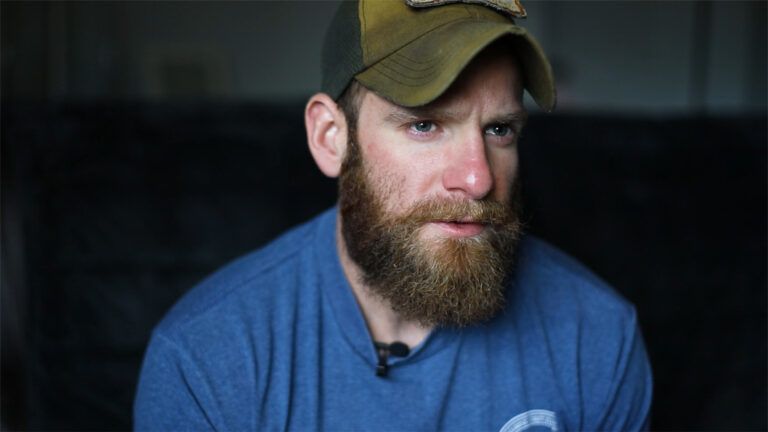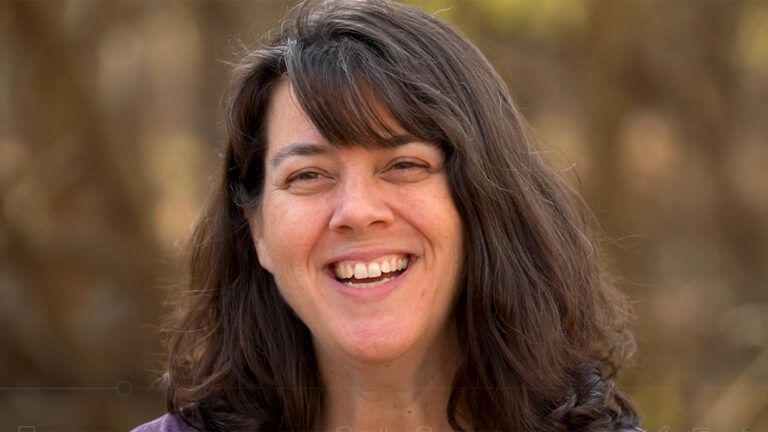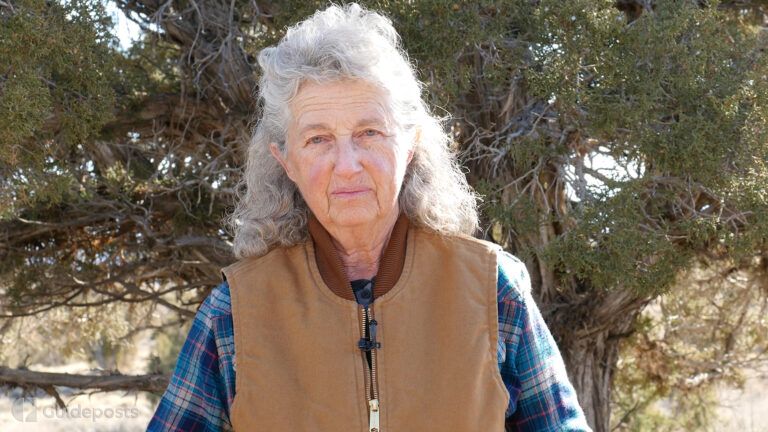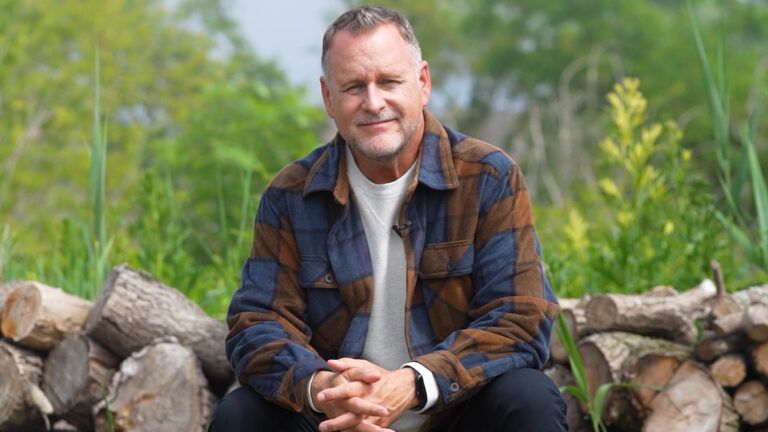
Tags
Guideposts speaks with Pastors Dave and Deborah Beddoe about Addiction
Listen as we speak with Dave and Deborah Beddoe, pastors who saw their lives thrown into turmoil due to Dave’s addiction to painkillers.
View Transcript
Guideposts Video: Inspiring True Stories
Jim Hinch: Hi, I’m Jim Hinch with Guideposts magazine. Today’s conversation is with Deborah and David Beddoe, Christian ministers who’ve had their lives changed by addiction. Listen as they share how they walk the road to recovery with hope, faith, and prayer.
Deborah Beddoe: We met when we were about 19.
David Beddoe: But a very mature 19.
Deborah: And we were both pretty good kids. You know, rule followers.
David: Yeah.
Deborah: So our school had rules about drinking and dancing and smoking, and we didn’t do any of that. Yeah, and addiction, I would say, was nowhere on my radar at all. I believed that if you stayed away from those things, those vices, you would never have that sort of a problem, like addiction.
Jim: So neither of you knew anyone struggling with addiction?
David: Yeah, I didn’t even really know much about it. I’d had a great grandfather who had been an alcoholic, and we knew about addiction, but only in context of you had victory. So we heard stories of people who used to be, but now were really good people. No one that was a good person and an addict, you know?
Deborah: Yeah, and I’d say that there’s this—I guess the Christian culture that we were in. That idea that if you have right theology, it will lead to right living. That absolutely was—that was part of what I believed, and I think both of us did.
David: Yeah.
Deborah: So it didn’t even seem like it was something that was possible. As long as you stayed away from the bad stuff, it wasn’t possible for you, as long as you believed all the right things, to get caught up in something like that.
Jim: When did things start to fall apart?
David: At work, I was kind of was foundering a little bit, but I stumbled kind of backwards into teaching and loved that. So you know, things had continued to kind of work out for us. And again…
Deborah: Well, maybe not “work out.”
David: Well, OK. Yeah, no, I mean, exactly. What do you mean?
Deborah: I mean because your migraines had started.
David: That’s true, yeah.
Deborah: No, that was a huge damper on this newlywed life of him starting out with so much pain and living with pain. And you know, where our friends who were getting married were thinking about careers and buying houses and all of that, we were kind of stuck for a while in—actually, for a long time we were stuck in this pain and trying to figure out what was wrong with Dave. Why was he getting migraines all that time? And what were we doing in our life that was causing this pain? You know, was it food? Was it diet? Was it stress?
David: Was it sin?
Deborah: Was it a sin that he had that he needed to get rid of? And so there was always, from the beginning, he would go along for a little while without a migraine, then a migraine would hit, and then he’d have to have pain medication. And it just would start a cycle, and so those early years, while we were so happy and excited to be together, we also had this pain issue going on that really caused us a lot of kind of confusion and doubt about what we were doing, where we were headed. It was just confusing to have to deal with that much pain that early in our marriage, I think.
Jim: So painkillers for migraines became addictive.
David: Yeah.
Jim: Deb, what did you notice about Dave as he started to change from the man you first knew?
Deborah: There were things, signs that I didn’t notice, and that I only knew looking back, if that makes any sense, that in the end, when I really, really realized, This is not going away. This is so much more than I can handle was when it started to affect me. And it had affected me, but when I started to really recognize, Oh my goodness, I have turned into this really angry person. Even after we realized, yeah, he has a little problem here, the fact that it kept happening over and over.
David: Yeah.
Deborah: I think because of the foundation of not believing that this was a thing that could happen with Christians, of that blurry line with the pain medication of when was it necessary and when did it turn into addiction, and when it finally got to that point where I was like, Wow, this really is a serious problem. He is not living up to the things that he’s saying that he’s going to do to fix his problem, and I don’t know what to do with this. And in the middle of him leading this ministry, I hit a wall of anger. And I saw that start to come out on my kids, and that’s when I realized, OK, I need help for me. Even if he doesn’t recognize that he has a problem that needs help, I need help for me, dealing with that.
Jim: You were angry with him. Angry at this life you didn’t sign up for.
Deborah: Yes. So that was this revelation of peeling away my denial, basically, I guess. At the point when we were in Washington—we’d moved to Washington, kind of getting away from Southern California and all that—we thought maybe all of this crazy life, maybe that’s him being sick with migraines all the time. Maybe if we move to Washington, it’ll be fixed.
David: Because it was California’s fault.
Deborah: Yeah, maybe if we move to Washington, you’ll be fixed. Maybe Dave saying, I think God is calling me to seminary. And so I’m thinking, OK, Tacoma. Great. And then after we were there for a while, his addiction problem didn’t go away, and we started getting bills, and it was all for doctors and medications and stuff. And I just thought, You know what? He’s just being really irresponsible here, and I blamed it on that, because I still had this idea in my head that he needed the medication for his migraines, but he could control it.
So while I’m in the middle of this idea and really frustrated with him and angry about the situation and trying to figure out what to do with my irresponsible husband, then this episode of Oprah airs, and the guest is talking about the same kinds of problems that I was seeing in my husband. And then the big reveal was, oh, he’s addicted to pain medication. And I just was shocked. I thought that the pain medication that he was on was not addictive. And why, by this point, with as much as we had gone through, I would still believe that about that medication, I don’t know. Then I realized I should probably actually check this medication, and I did, and it turns out that it actually was addictive.
So I confront him and tell him, “Hey, you’re addicted to pain medication. You should probably fix that.” Kind of still believing that if he just acknowledged the problem and confessed that it was a problem…
David: And just stopped taking pills.
Deborah: Yeah, and have some accountability, he’d be great.
Jim: And of course, it wasn’t that easy. He couldn’t “fix it” in time to save his job. So when he came to you with the news that he’d been fired for stealing from the Christian camp where he worked and where your family lived, how did you handle that?
Deborah: Well, I was completely devastated and shocked, because for that last year, both of us had been going to a recovery group. And I thought that he was getting better. He also, in that time, had a relapse that I knew about, that his boss knew about, and that he did a brief in-patient stint in there, and came out with the replacement drug to help people get clean. And so I thought, Well, we’ve tried everything else. It seemed like it was working, and I thought—for seven months, I’m thinking, This is fantastic. And I did not know that it actually wasn’t, and that he had gone back to taking pills.
And so it was not just a double whammy. It was multiple things. It was being hit with all that I had believed for the last seven months about his recovery was suddenly a lie, and then this feeling of hopelessness, of OK, what do we do now? Because it’s not just a job loss. We’ve lost our home, too. Oh, and we’ve also lost this ministry that we love. So it was so many levels of pain all hitting at once, and then it was November, and we’re looking at Christmas and having little kids, and what do we do now?
To that point, our families had been pretty supportive. And while they didn’t know every time that he had relapsed, they knew about the big ones, and had been really supportive of us and had even bailed us out of debt a couple of times by this point. And so my fear, too, of Oh my goodness, we’ve also burned through all the support that our families can give us. What are they going to say now? And I shut down.
Jim: How did you make the choice to stay?
Deborah: I also asked myself that, because I believed for several years that if it ever came to that point where it ruined our lives again—because it had, previously—I thought, If he ever does that to me again—if it ever reaches that point again, I’m leaving. When that actually happened, after being stunned and hitting that point of pain, my thought was, He made this mess. He’s going to fix it.
A lot of people who have the story of the addiction, there was also violence or abuse associated with it. But he wasn’t like that at all. Being with Dad wasn’t any danger to my kids, and I thought, Well, if I walk away from this, I’m the bad guy here to my kids, because they don’t see the person that I see. And I’m thankful to God that that actually was his rock bottom, and I didn’t have to go to that choice again and find myself at that point again. But I do believe that if he had not picked up the pieces, I would have had to make that choice.
Jim: Obviously, you couldn’t overcome the addiction alone. Where did help come from?
Deborah: Because of where we were, that we were involved in Christian ministry, there was a little bit from that, a little bit from the church that we were attending, a little bit from our Christian family, and then from other Christians in the community that we knew through other places. So there was this bigger help. Oh, and then our recovery group. And then there was our local church.
David: The church community around us, like Deb said. Not just our own local church, but believers around us. Our families, of course, were ridiculously supportive. I’m going to tell one quick story. I remember one day, we were driving home, and this is still raw. We were still living at the camp. They’d let us stay for a few weeks, which was really generous, and I was still thinking people were going to hate me. And as we pulled up, we were driving home from church, I think, and on our doorstep was a black, plastic trash bag. And I was like, Somebody is so mean that they threw their trash on our door.
Deborah: So angry at you.
David: So angry at me. And we pull up and open it, and it’s trash bags full of wrapped gifts for the kids. And the thing that I dreaded was being the recipient of help. I’m supposed to be the helper, not the helpee. And then they helped us again, and then a third time, they helped us, which went beyond their normal—at the time, for helping people, helping families, they had a cap on the dollar amount and how often in a year a family could receive help. And they had to jump through all these hoops to be able to do more for us, which they were great and they did. They made exceptions to their own policy, had to have the board vote on it.
But I’ll be honest. In the middle of that, it was pretty embarrassing, and one of my things when I came into being a pastor was, we’re changing that rule. The deacons, the people who were in charge of that fund, were unanimous: You know what? If somebody needs help, we’re not going to put an artificial cap on it. We’re going to make it so they can maintain some dignity in the middle of that process. We want to be good stewards of the money and help that we offer, so there will be accountability and we’ll make sure it’s spent on the right things, but we’re not going to make them jump through a bunch of hoops.
So that kind of stuff, to me, giving somebody dignity. And I think the biggest thing our church and pastor gave me was dignity. And also, you know what? It wasn’t just loving us and welcoming us into the church. They still respected me and gave me worth, even as I was admitting that stuff.
Jim: You’ve come a long way. Do you fear going back, or are you confident in your recovery journey?
David: Well, all throughout for me, yes. I’m living the dream, man. I am. I can’t believe I get a chance to do what I do. So I get to be in ministry, I get to work in a fantastic church with people I love, working with people on the fringe who have been hurt and who have problems. So on the one hand, I have a huge amount of hope. I hope the future is more of that. I hope it’s a chance to connect and have coffee with and celebrate a week clean and all that stuff—that is fantastic. And I hope it just keeps on. And part of that is I know I am one pill away from being back in that place. And so I want to be clean. I want to be honest. I want to be safe, and I want to make sure I have help around me.
And so I want to not only keep my guard up, but also keep accountability and keep the confidence. Just that same thing that if it ever did happen, to be able to be in a place where I could share that and find the help I need. But I have huge hope for the future because when I was using, I didn’t imagine not using could be fun. And my life is so fantastic now. Not everything is perfect. Not everything’s great all the time, but it’s so much better. And the risk/reward is huge. So I look forward to huge hope to continue doing what I’m doing. And so there’s both a carrot and a stick that keep me hopeful for the future.
Deborah: Yeah, I think that it took a lot of years to get past fear, and I think, too, it was really important for us to have—we had six years away from full time or vocational Christian ministry. And for both of us, that was actually the only time in our whole lives, because we were raised in church, and both of our sets of parents were—that was their full time calling, was Christian ministry. And so those six years were so important for us, I think, to step away and heal. That strengthened us, I think, in a way. Just out of that and having that pressure removed so that we could heal.
I think, working past that fear of what if this happens again—that was huge, and it took more than just me. But the longer that he has been clean and sober—celebrating 10 years was huge. But we’re not—Dave will say it, and he did. We’re not under an illusion that the longer you’re clean, that means you’re invincible. It’s just knowing differently that a failure doesn’t mean the end—that a failure means, well, you have to pick yourself up again and just keep going. And I think that fear is powerful.
Fear and shame are so powerful, not just for an addict, but also for people who are in their family. And being in a place where I can talk to people honestly about my fears and where I’ve worked through some of those issues of shame. I think that that has been probably the most powerful thing for me within our church. I think even the last few years of being connected with people and feeling like I’m connected with them to a point where I could be honest about some of these things. But it took time.

